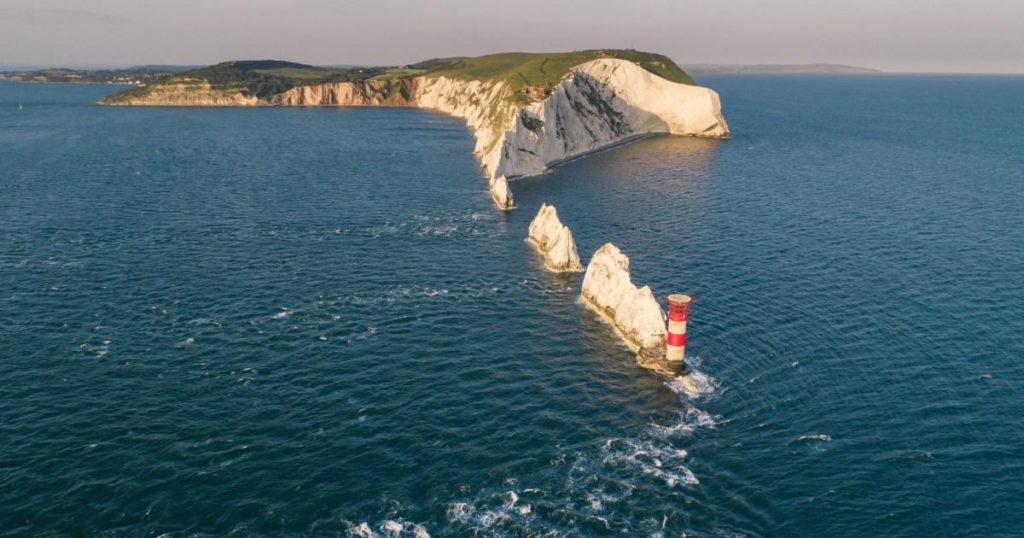The Isle of Wight, a seemingly idyllic and remote British island, harbored a hidden history of LGBTQ+ life for decades. Robin Ford, a prominent figure in the island community as a teacher, councillor, and even mayor, lived a double life. Publicly respected and known, he privately carried the “great unmentionable” secret of his homosexuality and served as a crucial gatekeeper for a clandestine LGBTQ+ community. His story, unearthed through the Out on an Island project, is a poignant example of the repression and hidden lives led by LGBTQ+ individuals on the island.
Robin’s journey began in 1955 with a mixture of exhilaration and shame at the discovery of the word “homosexual.” The pervasive social stigma surrounding homosexuality on the island forced him into years of denial and attempts to conform to societal expectations. This included a seven-year heterosexual marriage in an attempt to erase his true identity. The prevailing societal view that homosexuality was an illness further compounded his internal struggle and enforced the need for secrecy. Experiences of overt homophobia, from being called “filthy” by a GP to having homophobic slurs scrawled on his school desk, reinforced the dangers of living openly as a gay man.
His public life as a councillor and mayor necessitated a double life. Fearful of exposure and the potential consequences, Robin lived a celibate life during his 15 years in public office, masking his true identity from the community he served. The AIDS crisis of the 1980s, a period marked by heightened public homophobia, ironically propelled Robin into a more active role within the island’s underground LGBTQ+ scene. He became the central contact for the Isle of Wight Gay Social Club, his phone number the only connection to this hidden community advertised in publications like Gay Times and the County Press. His home became a meeting place, offering a safe haven for individuals seeking connection and support in a hostile environment. This eventually led to him finding love and a long-term partner, James.
Joanne Brady’s experience provides another perspective on the challenges faced by LGBTQ+ individuals on the Isle of Wight. Arriving from Ireland in 1984, she encountered blatant homophobia in her workplace. She and her partner, along with other gay female employees, were threatened with job loss if they didn’t change their “disgusting lifestyle.” This incident, emblematic of the island’s prevalent homophobia, drove Joanne and others underground. They sought refuge in the secrecy of the “Social Group,” meeting discreetly in private homes and later in hired venues, constantly aware of the need for discretion. Even seemingly innocuous activities, like attending a gay night at a local nightclub, carried the risk of violence and exposure.
The need for escape and the desire for a sense of belonging led the Social Group to organize trips off the island, to cities like Blackpool and Brighton. These trips offered a temporary reprieve, a chance to experience the freedom of living openly without fear of judgment or reprisal. The contrast between the oppressive atmosphere on the island and the relative openness of these cities underscored the isolation and challenges faced by the Isle of Wight’s LGBTQ+ community. These journeys became essential for their emotional well-being, providing a glimpse of a life free from the constraints of their island existence.
The Out on an Island project, funded by the National Lottery Heritage Fund, has been instrumental in unearthing and documenting these hidden histories. Recognizing the lack of representation of LGBTQ+ lives outside major urban centers, the project sought to capture the unique experiences of those living in rural communities like the Isle of Wight. By collecting oral histories and preserving personal accounts, the project has shed light on the challenges, resilience, and community spirit of the island’s LGBTQ+ population. These stories, often marked by hardship and discrimination, offer invaluable insights into the impact of societal prejudice and the importance of finding support and connection in the face of adversity.
The Isle of Wight’s journey towards LGBTQ+ acceptance has been long and complex. The island’s first Pride event in 2017 and its hosting of UK Pride in 2018 marked significant milestones in its progress. While these events signify a growing acceptance and visibility, concerns about lingering homophobia remain. The stories gathered by Out on an Island serve as a reminder of the past struggles and the ongoing need for education and understanding. The development of support groups and organizations offers hope and resources for the island’s LGBTQ+ community, but the fight for full equality and acceptance continues, driven by the memories of those who lived in the shadows and the desire to create a more inclusive future.


